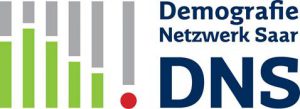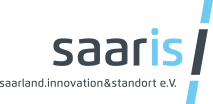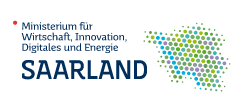Follow-up "Demographic Network Saar - DNS" (IV)
Project Duration: July 2022 - December 2028The Demografie Netzwerk Saar (DNS) is an intersectoral regional network aimed at companies based in Saarland, particularly small and medium-sized enterprises as well as craft businesses. The goal is to develop and provide a practical support, information, and consulting offering to assist companies in making their personnel management and organization resilient for the future. This aims to ensure their continued competitiveness in the face of demographic changes.
The Demografie Netzwerk Saar provides assistance for self-help through the exchange of experiences and knowledge transfer, enabling companies to independently initiate suitable measures and change processes. This may include the implementation of lifecycle-oriented personnel policies, diversified recruitment strategies, innovative approaches to personnel acquisition, age-appropriate work design, concepts to promote the health and workability of older employees, as well as measures to enhance employer attractiveness.
The corporate network within the DNS promotes inter-company knowledge transfer and mutual exchange of experiences through networking. It provides insights into best practices of Saarland-based companies. The Demografie Netzwerk Saar is a component of the skilled labor strategy of the state government. The DNS project is supported by the Saarland Ministry of Economic Affairs, Innovation, Digitalization, and Energy and the European Social Fund Plus.
The project is carried out by the Institute for Social Research and Social Economy (isoin cooperation with saarland.innovation&standort e.V. (saaris), the project is being conducted by the Institute for Social Research and Social Economy.
Project Duration:
July 2022 – December 2028
Grant Authorities:
Funded by:
European Social Fund Plus
Project Management and Coordination:
Cooperation Partners:
Project Homepage:
Publications:
Hielscher, Volker; Schmitt, Melanie (2024): Netzwerke als Impulsgeber für Arbeitsgestaltung? In: Sicher ist Sicher, Nr. 2/2024, S. 73-78.




